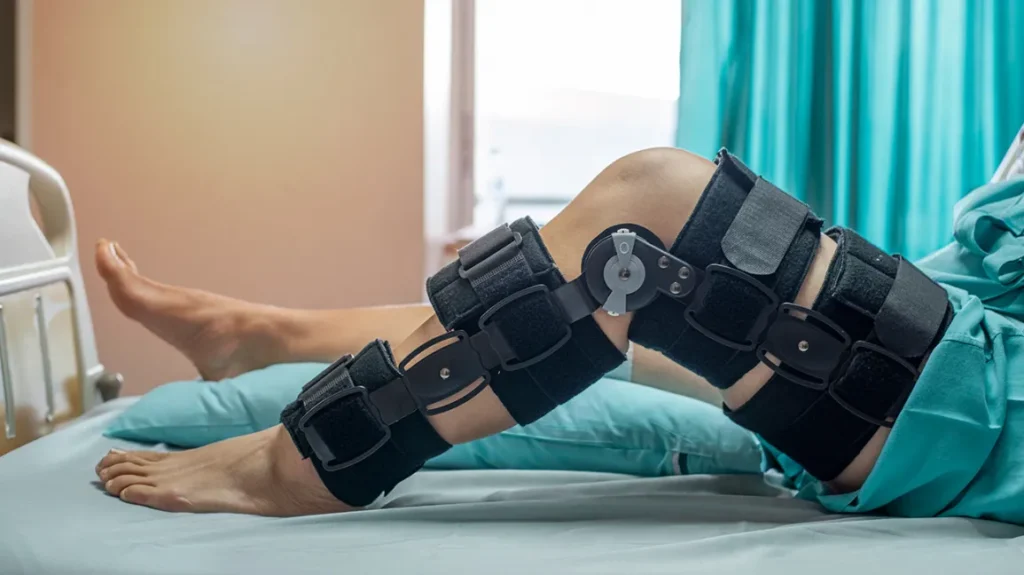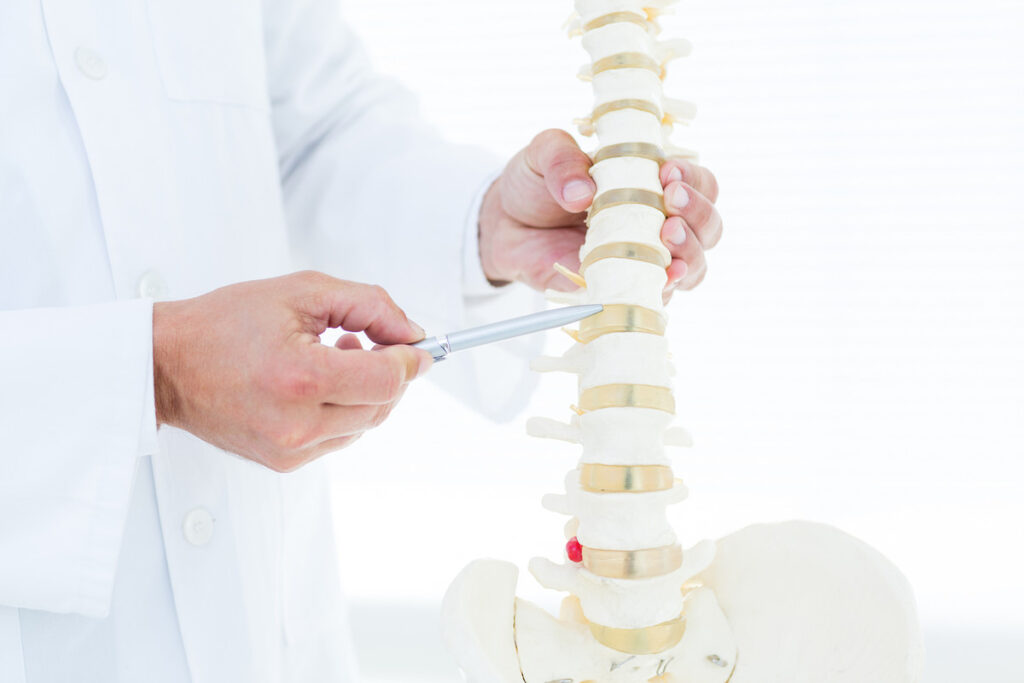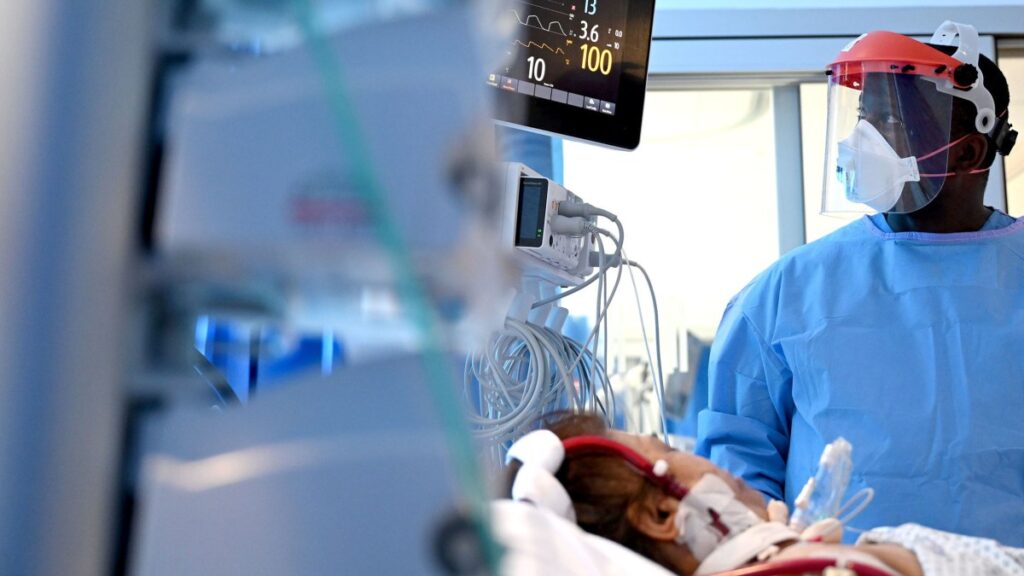Total joint replacement surgeries, like knee or hip replacements, typically require a recovery period of about three months. These surgeries involve replacing damaged joints with artificial ones to alleviate pain and improve mobility.
During this recovery time, patients undergo physical therapy to regain strength and mobility in the replaced joint. Additionally, spinal fusion surgeries, major abdominal surgeries such as gastric bypass, organ transplant surgeries like kidney or liver transplants, cardiac surgeries like coronary artery bypass grafting, and orthopedic surgeries for fractures may also have similar recovery periods.
Close adherence to post-operative care guidelines and rehabilitation programs are essential for a successful recovery and return to normal activities.
Factors Affecting Recovery Time

The time it takes to recover from surgery can vary greatly depending on a multitude of factors. While some procedures might have you back on your feet within a week, others can require months of rehabilitation. Here’s a detailed breakdown of the key influences on recovery time:
Type and Complexity of Surgery
This is the most significant factor. Minimally invasive surgeries with smaller incisions generally have shorter recovery times compared to open surgeries requiring larger incisions and manipulation of more tissues.
Additionally, the complexity of the procedure plays a role. Reconstructive surgeries or those involving delicate structures like nerves or blood vessels will likely have longer recovery periods.
Overall Health of the Patient
A patient’s pre-surgical health significantly impacts their recovery journey. Here are some key aspects:
- Age: Younger patients tend to heal faster due to their body’s natural resilience. As we age, tissue repair slows down, extending recovery times.
- Chronic Conditions: Existing health issues like diabetes, heart disease, or obesity can impede healing. Managing these conditions pre-surgery can improve outcomes.
- Nutrition: A balanced diet rich in protein, vitamins, and minerals provides the building blocks for tissue repair. Malnutrition can hinder recovery.
- Smoking: Smoking constricts blood vessels, reducing oxygen and nutrient flow to healing tissues. Quitting smoking before surgery is highly recommended.
- Immune System Function: A strong immune system is crucial for fighting infections and promoting healing. Underlying immune deficiencies can prolong recovery.
Post-Surgical Complications
Even the most successful surgery can encounter unforeseen complications. These can significantly extend recovery time, especially if they require additional procedures or treatments. Examples include:
- Infection: Surgical sites are susceptible to infection, which can delay healing and require antibiotics or further surgery.
- Bleeding: Excessive bleeding during or after surgery can necessitate interventions and delay recovery.
- Blood Clots: Blood clots in the legs (deep vein thrombosis) can be a serious complication after surgery, requiring medication and potentially extending recovery.
- Anesthesia Complications: While rare, some patients experience side effects from anesthesia that can prolong recovery.
Other Factors
Effective pain management allows patients to participate in physical therapy more actively, which can accelerate recovery.
Rehabilitation exercises prescribed by a physical therapist are crucial for regaining strength, mobility, and function. Adherence to the therapy plan significantly impacts recovery.
A positive attitude and good mental health can contribute to a smoother recovery process. Stress and anxiety can hinder healing. Having a strong support system of family and friends who can help with daily tasks and provide encouragement can significantly aid recovery.
Top surgery takes 3 months to recover

Many surgeries can take 3 months to recover from. The specific recovery time will depend on several factors, including the type of surgery, the patient’s age and overall health, and the complexity of the procedure.
| Surgery Name | Surgery Explanation | Length of Operation | Recovery Time |
| Total Knee Replacement | Replacement of damaged knee joint with artificial prosthesis | 2-3 hours | ~3 months |
| Total Hip Replacement | Replacement of damaged hip joint with artificial prosthesis | 1-2 hours | ~3 months |
| Spinal Fusion Surgery | Stabilization and fusion of vertebrae in the spine | 4-8 hours | ~3 months |
| Gastric Bypass Surgery | Surgical reduction of stomach size and rerouting of digestive tract | 2-4 hours | ~3 months |
| Kidney Transplant Surgery | Surgical transplantation of a healthy kidney into a recipient | 3-4 hours | ~3 months |
| Coronary Artery Bypass Grafting (CABG) | Surgical bypass of blocked coronary arteries | 3-6 hours | ~3 months |
| Fracture Repair Surgery | Surgical repair of broken bones | Varies | ~3 months |
Total Joint Replacement Surgery:
Total knee replacement (TKR) or total hip replacement (THR) involves replacing a damaged joint with a prosthesis to alleviate pain and improve mobility.
Patients typically undergo physical therapy to regain strength, mobility, and function in the replaced joint. The recovery period generally lasts about three months, during which patients gradually increase their activity levels.
Spinal Fusion Surgery
Spinal fusion stabilizes and fuses two or more vertebrae in the spine, often to treat conditions like spinal instability, deformities, or disc degeneration.
Recovery from spinal fusion surgery can take up to three months or longer. During this time, patients may need to limit physical activities and participate in rehabilitation programs to promote healing and restore spinal function.
Major Abdominal Surgery:
Major abdominal surgeries, such as gastric bypass surgery or complex abdominal reconstruction, involve significant surgical intervention within the abdomen.
Patients may experience pain, swelling, and limited mobility during the recovery process, which typically lasts approximately three months. Close monitoring and adherence to post-operative care guidelines are essential for a successful recovery.
Organ Transplant Surgery
Organ transplant surgery, such as kidney or liver transplantation, involves surgically replacing a failing organ with a healthy one from a donor.
Recovery from organ transplant surgery can be lengthy, often taking up to three months or more.
Patients must closely follow post-transplant care guidelines, including immunosuppressive medication regimens, and undergo regular medical monitoring to prevent rejection and complications.
Cardiac Surgery
Cardiac surgeries like coronary artery bypass grafting (CABG) or heart valve replacement surgery are performed to treat conditions affecting the heart and blood vessels.
Patients typically undergo cardiac rehabilitation to improve cardiovascular function and overall health. The recovery period for cardiac surgery is usually around three months, during which patients gradually increase their activity levels under medical supervision.
Orthopedic Surgeries:
Orthopedic surgeries, such as those to repair fractures or perform internal fixation, are performed to treat injuries or conditions affecting the musculoskeletal system.
Recovery from orthopedic surgeries may take approximately three months, during which patients undergo rehabilitation and physical therapy to promote healing, regain strength, and restore mobility in the affected area.
Close follow-up with healthcare providers is essential to monitor progress and address any complications.
Patient Expectations and Support After Surgery

Patient expectations and support after surgery are crucial aspects of the recovery process. Here’s an overview:
Patient Expectations
Understanding a patient’s expectations is crucial for a successful surgical experience. Patients often have expectations about:
- Surgical outcome: The desired improvement in their condition and the degree of pain relief.
- Recovery process: The timeline for returning to normal activities and the level of pain involved.
Length of stay and what to expect during hospitalization. Doctors need to discuss potential limitations and complications to avoid disappointment after surgery. Realistic expectations lead to better patient satisfaction.
Importance of Support
A strong support system plays a vital role in a patient’s recovery journey. Support can come from:
- Family and Friends: Having loved ones who can help with daily tasks like cooking, cleaning, and transportation can significantly ease the burden on the patient.
- Healthcare Team: Doctors, nurses, and physical therapists provide guidance, address concerns, and ensure the patient is on track for recovery.
- Support Groups: Connecting with others who have undergone similar surgeries can offer emotional support, shared experiences, and practical tips.
How to Enhance Support
Doctors should encourage open communication and address patient concerns promptly. Providing patients with detailed information about the surgery, recovery process, and potential challenges empowers them to participate actively in their care.
Coordinating care post-discharge, including physical therapy referrals and medication management, ensures a smooth transition to home recovery. Healthcare providers can connect patients with relevant support groups or online communities.
Benefits of Strong Support
Patients are more likely to follow doctor’s orders and participate in physical therapy when they have support. Feeling supported can alleviate anxiety and promote a more positive outlook, which can positively impact recovery.
Having someone to assist with pain management techniques and provide emotional support can contribute to better pain control. The encouragement and assistance from a strong support system can motivate patients to persevere through challenging recovery phases.
Final Words
Surgeries like total joint replacements often take around three months to recover fully. Whether it’s a knee or hip replacement, spinal fusion, major abdominal surgery, or even organ transplants, patients need patience and follow their doctor’s instructions closely.
So, it’s important to take it slow, focus on rehabilitation, and listen to your body. With time and dedication to the recovery process, most patients can regain mobility and resume their daily activities. Remember, recovery is a journey, and while it may take time, it’s worth it for a healthier and more active future.
